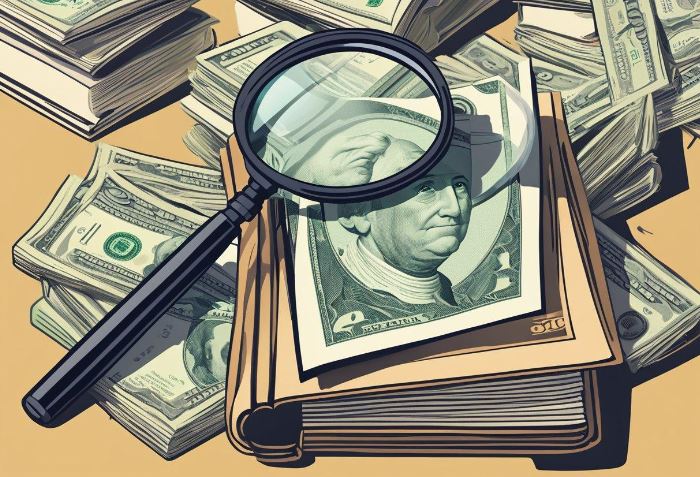
The Art of Book Editing and Money: A Comprehensive Guide
The art of book editing is a crucial aspect of the publishing industry. It involves the process of refining a manuscript to make it more appealing to readers. While the primary goal of book editing is to improve the quality of the content, it is also a business that involves an editor salary and thus money.
Professional editors offer competitive rates to ensure that their services are accessible to authors. Many book editing service providers also offer discounts to authors who purchase multiple copies of their book or use their services for a longer period. However, the cost of book editing varies depending on the length and complexity of the manuscript.
As the publishing industry continues to evolve, the demand for book editing services is on the rise. Authors are aware that the quality of their work can make or break their success in the industry. Therefore, investing in book editing is a wise decision that can help authors achieve their goals. The art of book editing is a crucial aspect of the publishing industry that requires skill, knowledge, and experience.
Understanding the Editing Process
Editing is a crucial step in the book publishing process. It involves improving the quality of the manuscript, ensuring that it is well-written, and free of errors. In this section, we will discuss the role of editors, types of editing, and the editor-author dynamic.
The Role of Editors
Editors are professionals who help authors improve their manuscripts. They work to ensure that the book is of high quality, free of errors, and ready for publication. Editors may work for publishing houses or as freelancers.
Types of Editing
There are different types of editing, each with its own purpose. Developmental editing involves working with the author to improve the overall structure and content of the manuscript. Copyediting involves checking for grammar, punctuation, and spelling errors. Proofreading involves a final check for errors before publication.
The Editor-Author Dynamic
The relationship between the editor and author is crucial to the success of the book. The editor should be a partner to the author, offering constructive criticism and guidance. The author should be open to feedback and willing to make changes to improve the book.
In fiction, editors may work with the author to develop characters, plot, and pacing. In nonfiction, editors may help the author organize the material and ensure that it is accurate and engaging.
Overall, the editing process is an essential part of book publishing. It ensures that the book is of high quality and ready for publication. By understanding the different types of editing and the editor-author dynamic, authors can work with their editors to create the best possible book.
Navigating the Publishing Industry
Navigating the publishing industry can be a daunting task, especially for new authors and editors. Understanding the process of turning a manuscript into a book, the costs involved, and building a career in book editing are all crucial components of the publishing industry.
The Journey from Manuscript to Book
The journey from manuscript to book can be a long and complicated process. It involves several stages, including editing, design, printing, and distribution. Each stage requires the expertise of publishing professionals, including editors, designers, printers, and distributors.
Editors play a vital role in the publishing process, helping authors refine their manuscripts and ensuring that the final product is of high quality. They work closely with authors to ensure that the manuscript is well-written, engaging, and free of errors.
Once the manuscript is edited, it moves on to the design stage, where the cover and interior layout are created. Printing and distribution follow, with the book being distributed to bookstores, online retailers, and other outlets.
Understanding Publishing Costs
Publishing costs can vary widely depending on the type of book, the publishing house, and the level of editing required. Self-publishing can be a more affordable option for authors, but it requires a significant investment of time and money.
Editors may charge by the hour or by the project, with rates varying depending on the level of editing required. Freelance editors typically charge less than those working for publishing houses, but they may not have access to the same resources and industry standards.
Authors should be prepared to invest in editing, design, and printing costs to ensure that their book is of high quality and marketable.
Building a Career in Book Editing
Building a career in book editing requires a combination of skills, experience, and networking. Many editors start as interns or assistants and work their way up to more senior positions.
Editors can work for publishing houses, literary agencies, or as freelance editors. They may specialize in a particular genre or type of book, such as academic, trade, or children’s books.
To build a successful career in book editing, editors should be familiar with industry standards, have strong communication and organizational skills, and be able to work independently and as part of a team. Networking with other publishing professionals can also be beneficial in building a career in book editing.
Conclusion
In conclusion, the art of book editing is a crucial aspect of the publishing industry. It requires a keen eye for detail, a passion for language, and a willingness to work collaboratively with authors to bring their vision to life. While the role of an editor is often invisible to the reader, it is essential to the success of a book.
Money is also a significant factor in book editing. Editors must balance their passion for the craft with the financial realities of the publishing industry. They must negotiate contracts, manage budgets, and make tough decisions about which projects to take on.
However, the pursuit of profit should not overshadow the importance of quality editing. Editors must maintain high standards and strive to produce books that are enlightening, seamless, and pleasurable to read. They must also be mindful of the impact their work has on the literary landscape and the broader culture.
Overall, the art of book editing and money are intertwined, but they should not be in conflict. By balancing financial considerations with a commitment to quality, editors can help ensure that the publishing industry continues to thrive.



